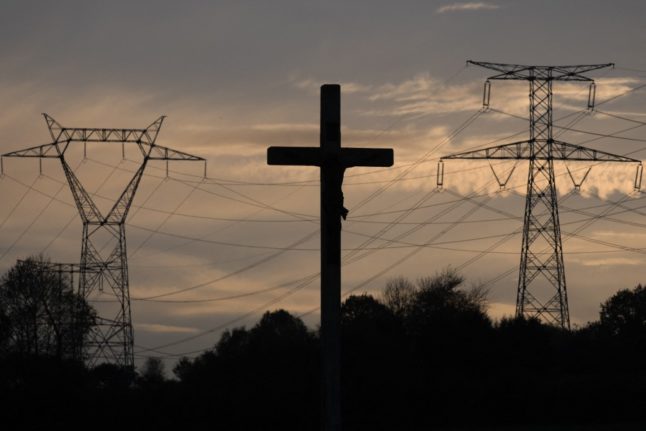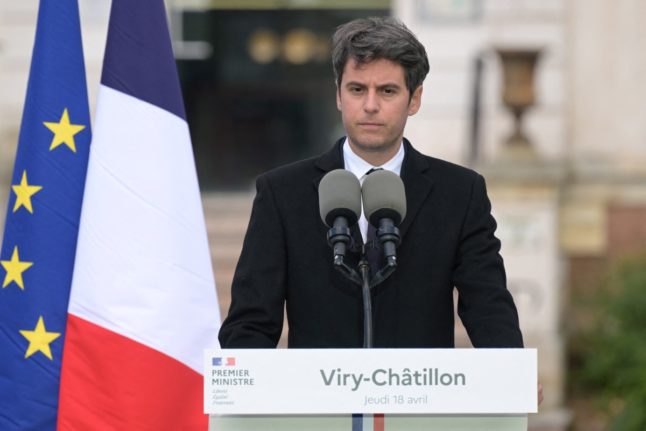In a rare joint statement, the leaders of the three top French energy companies came together to urge the French public to reduce their energy consumption.
The heads of TotalEnergies, EDF and Engie published an open letter in the Journal du Dimanche newspaper on Sunday calling on the French to “immediately” reduce their consumption of petrol/gasoline, diesel, oil, electricity and gas in order to help stave off the shortages and soaring prices that could threaten “social cohesion” in France this winter.
The letter begs people to begin “acting this summer,” on cutting energy and fuel usage, adding that this “will allow us to be better prepared to face next winter and in particular to preserve our gas reserves.”
Why is there a risk of shortage this winter?
In light of the war in Ukraine, deliveries of Russian gas to France and other European nations via pipeline have been significantly decreased. Thus France, like the rest of Europe, is attempting to fill its gas reserves in preparation for this upcoming winter. The goal is to have French gas reserves at 100 percent by this fall.
As Americans prepare for ‘driving season’ (when many families use their cars to go on vacation) and China begins to relax some of its lockdown measures, the world oil market is looking at high demand that may not be in line with current production capabilities.
France is a relatively small consumer of Russian gas, but does depend heavily on domestic nuclear plants for energy – production of nuclear energy is however threatened by two things; droughts that mean shortages of water for cooling purposes at plants and maintenance issues that have lead to several plants being temporarily shut down for safety
Concern for adequate energy resources has been on the minds of energy providers for several years, according to the manager of France’s Electricity Transmission Network (RTE).
France has been anticipating that the winters of 2018 to 2024 would be “delicate” as this is a pivotal period for energy transition after several coal-powered plants were closed. France’s oldest nuclear plant, Fessenheim, was also shut down and disconnected from the French grid in 2020.
As of late May, almost half of France’s nuclear reactors were offline due to planned closures, as well as issues related to corrosion.
What is the real risk of shortage this winter?
“There is no risk of shortage in the short term,” assured France’s Ministry of Environment in May, as there are up to “90 days worth of strategic stocks, as well as commercial stocks, which can both be distributed throughout the country as needed.”
Experts like Professor Jan Horst Keppler, from Paris-Dauphine University, also do not anticipate a widespread shortage, though, “potential spot shortages are possible.”
Horst Keppler clarified that it is not possible in many cases to substitute one quality of oil for another, which could mean that some refineries may experience “spot shortages.” Therefore, he urged that consumers and providers will have to pay close attention to “the availability of gasoline, diesel and heating oil” even more so “than the availability of crude oil.”
Other European countries, however, are sounding the alarm. Germany, for example, will return to coal-powered energy in order to meet demands this winter.
What are the energy companies doing to combat risk of shortage?
According to their statement, the heads of France’s top energy providers accept their “responsibility to act on the supply side” by implementing short term plans such as “diversifying gas supplies, proactively filling storage facilities, speeding up liquified natural gas (LNG) imports, and reactivating ‘mothballed’ facilities.”
Additionally, the leaders hope to launch a “major energy efficiency program” and a “national hunt for waste.”
In addition to ensuring adequate energy stocks for the winter, the three leaders also urge the French public to consider reducing consumption as a means for increasing household purchasing power in the fight against rising cost of living, as well as an effort to reduce greenhouse gas emissions. They also said that reducing energy “immediately” will show solidarity with other European nations at greater risk, particularly those in Eastern and Central Europe.



 Please whitelist us to continue reading.
Please whitelist us to continue reading.
Member comments